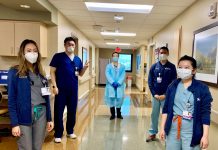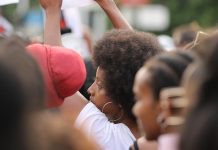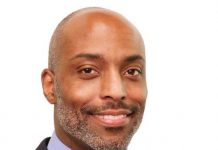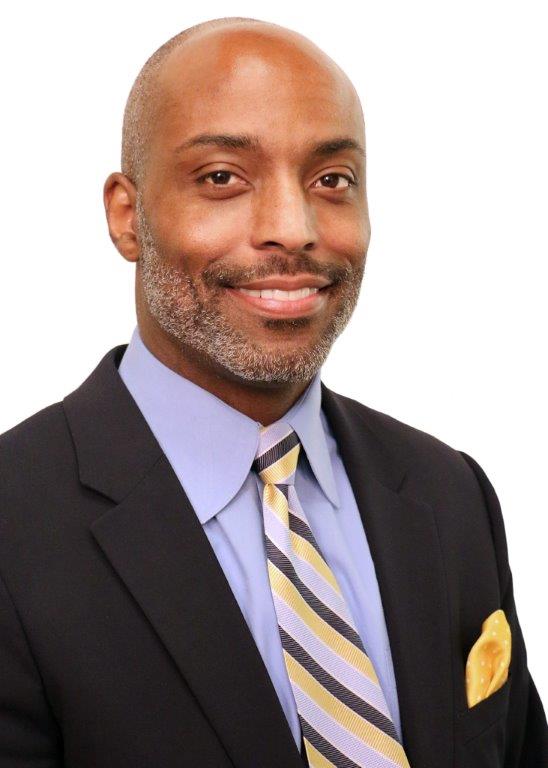I cringe at reports that suggest the coronavirus does not discriminate. While anyone can become infected, the virus’ effects are more significant for vulnerable populations that have underlying health conditions and lack access to quality healthcare and community services – resources that help people to better fight the disease and its aftermath. Even history bears out that crises magnify systemic inequality, and the current COVID-19 crisis is no exception.
The LGBTQ+ community, and other marginalized communities that may experience inferior health, housing and economic conditions, are indeed disproportionately affected by COVID-19, further compounding the disparities they already experience.
To help stem the disparity-expanse, we must have accurate COVID-19 data specific to the LGBTQ+ community – data that enables us to accurately assess the specific needs of our community during the crisis and its aftermath.
Data is key in the worldwide fight against this global pandemic. And for marginalized communities, such as LGBTQ+ persons, understanding the virus’ specific impact on these populations will better position us to develop scalable targeted interventions and initiatives to help these communities fight the virus.
That’s why Silver State Equality is advocating for the state of Nevada to collect sexual orientation and gender identity (SOGI) data on all COVID-19 related tests, infections, hospitalizations and deaths.
It is through the accurate collection and analysis of data that we will understand how and where COVID-19 impacts the most vulnerable among us. Data will inform policy and funding decisions during and post- COVID – decisions that have a direct impact on the health and well-being of LGBTQ+ people. It’s especially urgent now with cuts to social support programs in the State’s budget.
Nevada’s LGBTQ+ community has reason to be encouraged by recent discussions between Silver State Equality and representatives from the state’s Department of Health and Human Services (DHHS), who acknowledge the importance of sexual orientation and gender identity in COVID-19 data collection; and are willing to make changes.
Currently, Nevada’s DHHS is researching the best path forward for data collection. However, action must be taken sooner than later – whether through an executive order, legislation or simply a change in regulations and practice.
What we already know is that low-income LGBTQ+ Nevadans have lost access to some health care centers and HIV testing due to clinic closures resulting from the pandemic. We know from research that the likelihood of dying from COVID-19 increases for those experiencing poverty or other underlying societal inequalities like racism and transphobia.
We also know that the coronavirus has the potential to be more dangerous for LGBTQ+ people, who experience higher rates of co-morbidities and chronic conditions like diabetes, asthma, heart disease, or HIV – conditions that compromise immune systems and heighten vulnerability.
Compounding the problem, LGBTQ+ people also are more likely to be uninsured and experience discrimination when accessing medical care.
Even when insured, discrimination can prevent LGBTQ+ individuals from accessing care – a situation that could worsen if the U.S. Department of Health and Human Services finalizes a rule that would remove explicit protections for LGBTQ+ patients.
Adding to the danger, LGBTQ+ people are more likely to live in poverty and experience high levels of housing insecurity and homelessness, particularly LGBTQ+ youth, transgender people, and older LGBTQ+ adults.
LGBTQ+ youth and young adults are 120 percent more likely to experience homelessness than their non-LGBTQ peers. It’s also a strong possibility that more members of the LGBTQ+ community may be homeless with the end of the Federal Pandemic Unemployment Compensation program.
The LGBTQ+ community is facing a perfect storm as the impact of a health and economic crisis collide, and social safety nets are systematically underfunded. Unless state and federal governments make a collaborative effort to collect data on LGBTQ+ people affected by COVID-19, we will not be able to adequately respond to the unique needs of our community nor tailor existing and future policies and programs.
We can do better.
André Wade is State Director, Silver State Equality




























